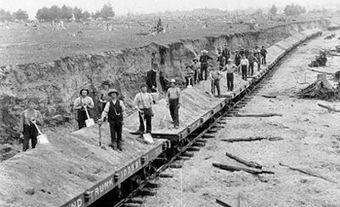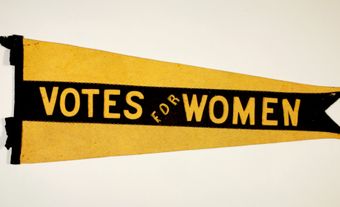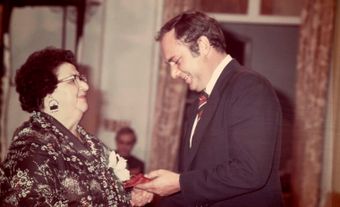Saskatchewan
Saskatchewan is part of the Prairie region and is the only province with entirely artificial boundaries. It is bordered by the US to the south, the Northwest Territories to the north, and Manitoba and Alberta to the east and west respectively.
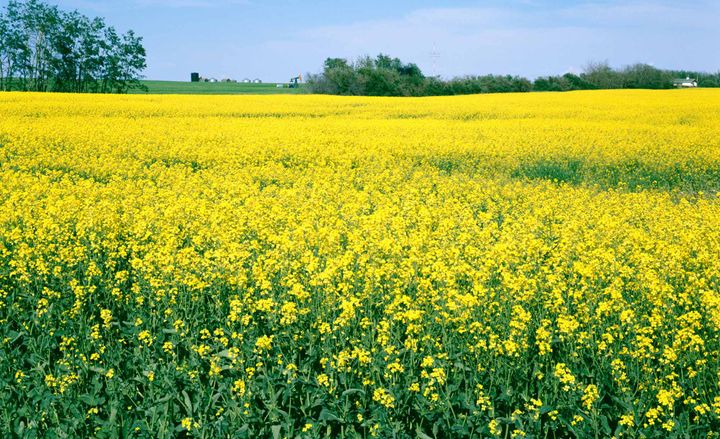
-
July 15, 1870
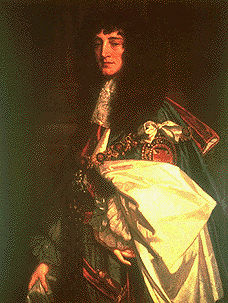
Government and Politics
Transfer of Rupert's Land
The British Crown officially transferred Rupert's Land and the North-Western Territory to Canada. These lands comprise present-day Manitoba, most of Saskatchewan, southern Alberta, southern Nunavut, and northern parts of Ontario and Québec.
-
September 15, 1874
Government and Politics Indigenous Peoples
Treaty 4
Treaty 4 was signed at Fort Qu'Appelle, Saskatchewan, with Cree, Saulteaux (Chippewa) and other First Nations.
-
August 23, 1876
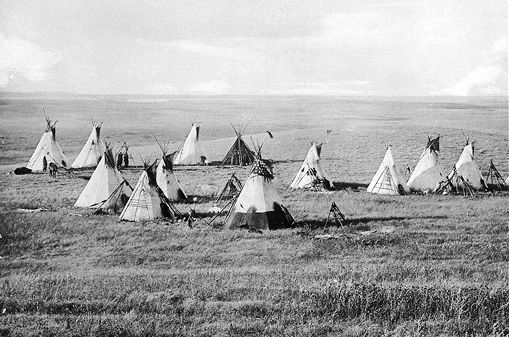
Government and Politics Indigenous Peoples
Treaty 6
Treaty 6 was signed at Carlton and at Fort Pitt with the Plains Cree, Woodland Cree and Assiniboine. It ceded an area of 120,000 sq. miles of the plains of Saskatchewan and Alberta.
-
May 08, 1882

Government and Politics
Western Provisional Districts
Land acquired from the Hudson’s Bay Company in 1870 was divided into four administrative districts by the federal government: Alberta, Assiniboia, Athabasca and Saskatchewan. The districts, designed "for the convenience of settlers and for postal purposes," were roughly equal in size and natural resource distribution.
-
March 27, 1883
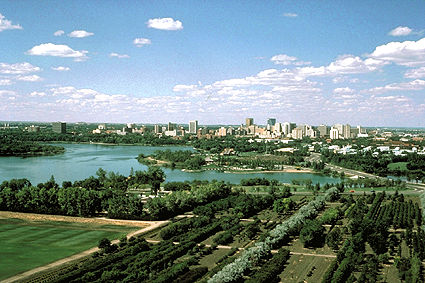
Government and Politics
Capital of the North-West Territories Shifts
The capital of the North-West Territories (the future Alberta and Saskatchewan) shifted from Battleford to Pile O' Bones (Regina). Cree hunters harvested buffalo in the region and stacked the bones of their quarry in piles roughly 2 m tall by 12 m in diameter. The Cree believed that buffalo herds would return to visit these bones, and so named the area Oskana-Ka-asateki, "the place where bones are piled."
-
March 26, 1885
Government and Politics Indigenous Peoples
Battle of Duck Lake
Leif Crozier, with a force of 98 North-West Mounted Police, was routed by Métis under Gabriel Dumont at Duck Lake, Saskatchewan, marking the outbreak of the North-West Resistance.
-
April 02, 1885
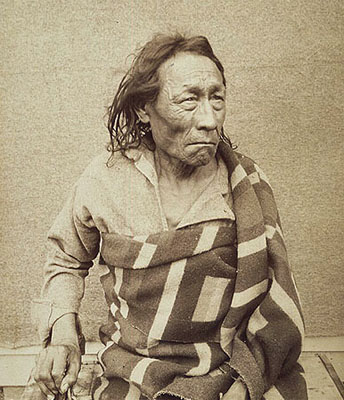
Government and Politics Indigenous Peoples
Frog Lake Incident
Wandering Spirit and other Cree in Chief Big Bear's band killed nine white men at Frog Lake, Sask, during the North-West Resistance.
-
June 19, 1903

Government and Politics
Regina Incorporated
Regina, Sask, was incorporated as a city.
-
February 27, 1905

Government and Politics
Sifton Resigns
Interior minister Clifford Sifton resigned from the federal Cabinet in a dispute over guarantees for separate schools in the Act making Alberta and Saskatchewan provinces of Canada.
-
July 18, 1905

Government and Politics
Dominion Act
The Dominion Act created the provinces of Alberta and Saskatchewan, effective September 1. Regina and Edmonton, respectively, became the capitals on July 20.
-
September 01, 1905
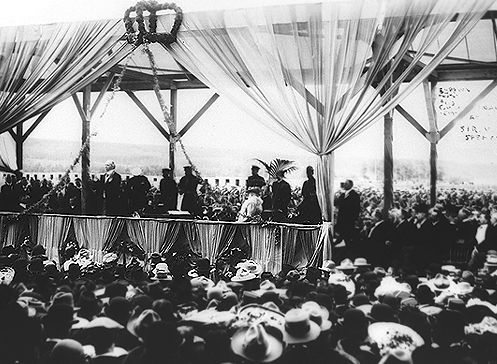
Government and Politics
Alberta and Saskatchewan Become Provinces
Alberta and Saskatchewan entered Canada as the 8th and 9th provinces by two federal Acts which received royal assent on 20 July. Alberta's boundary with Saskatchewan was set at 110°, though Albertans wanted 107°. The Acts (Autonomy Bills) declared that the West was to have non-denominational schools.
-
March 14, 1916
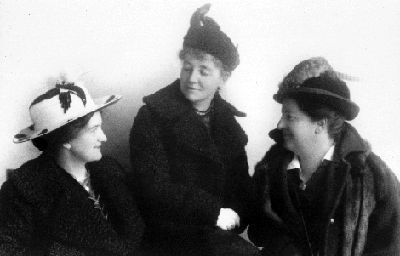
Government and Politics
Saskatchewan Women Get Vote
Saskatchewan women won the rights to vote and to hold provincial office.
-
July 01, 1920
Government and Politics
Dominion Elections Act
The Dominion Elections Act enfranchised many of those who had been disenfranchised during the First World War, such as those originating from countries with which Canada had been at war. However, the Act stated that anyone who was disenfranchised by provincial legislation because of race would remain disenfranchised from the federal vote. This included persons of Chinese origin in Saskatchewan, and those of Indigenous, Chinese, Japanese, and South Asian origins in British Columbia.
-
March 31, 1928
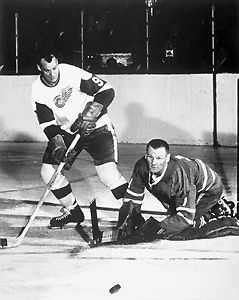
People
Birth of Gordie Howe
Hockey player Gordon Howe was born at Floral, Sask.
-
January 02, 1929

People
Birth of Allen Sapp
Cree artist Allen Sapp, one of Canada's foremost Indigenous painters, was born at Red Pheasant Reserve, Saskatchewan.
-
February 12, 1929
People
Birth of Philip Kives
Philip Kives, business executive who created K-tel International Inc, was born at Oungre, Sask.
-
September 08, 1931
Resources and Environment
Estevan Strike
Coal miners at Estevan, Sask, went on strike for union recognition. On September 29 three strikers were killed in a clash with the RCMP.
-
July 01, 1933
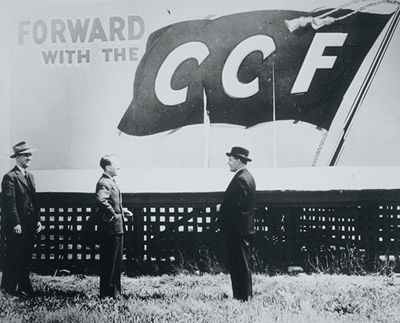
Government and Politics
CCF Approves the Regina Manifesto
The Regina Manifesto was the founding policy document of the Co-operative Commonwealth Federation (CCF). Written in 1933 and released at the party’s convention in Regina, the 14-point policy statement called for eradicating capitalism and adopting socialist economic and social policies in a democratic state. In 1956, the CCF replaced the Regina Manifesto with the Winnipeg Declaration.
-
June 19, 1934
Government and Politics
Liberals Win in Saskatchewan
The Liberals under James Garfield Gardiner won the Saskatchewan elections.
-
June 15, 1944

Government and Politics
CCF Triumphs in Saskatchewan
The CCF won the Saskatchewan provincial election, with Thomas C. Douglas as premier. It was the first socialist government in North America.
-
January 01, 1949
Indigenous Peoples
First Nations Win Right to Vote Provincially
Except in Nova Scotia and Newfoundland, Status Indians had been barred from voting provincially. Beginning with British Columbia in 1949 and ending with Quebec in 1969, First Nations peoples gradually win the right to vote in provincial elections without losing status or treaty rights.
-
May 30, 1961
Resources and Environment
Superstorm Hits Saskatchewan
An intense storm struck Buffalo Gap, Sask, pouring 250 mm of rain.
-
August 03, 1961

Government and Politics
Tommy Douglas Leader of the NDP
Saskatchewan's Premier Tommy Douglas was elected national leader of the newly formed New Democratic Party.
-
October 13, 1961
Government and Politics
First Medical Plan
The Saskatchewan Medical Care Insurance Bill, the first plan in North America providing universal coverage, was introduced in the Legislature. It received royal assent on 17 November 1961, to come into effect April 1 (later delayed to 1 July 1962).
-
July 01, 1962
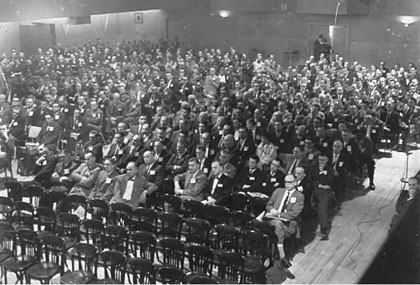
Government and Politics
Medicare in Effect: Doctors Strike
When the Saskatchewan Medicare Act came into force, most Saskatchewan doctors closed their offices. The Medical Care Insurance Commission brought doctors from out of province to meet the emergency.
-
April 22, 1964
Government and Politics
Liberals Win in Saskatchewan
The Liberals under W. Ross Thatcher won the Saskatchewan provincial election, displacing the CCF-NDP after 20 years.
-
May 30, 1969
People
Milgaard Arrested
Sixteen-year-old David Milgaard was arrested in Prince George, BC, for the murder of Gail Miller in Saskatchewan. He would be cleared by DNA evidence almost 30 years later, in 1997.
-
August 01, 1969
Government and Politics Resources and Environment
Grain Accepted for Tuition Payments
The government of Saskatchewan announced that feed grain would be accepted as payment for university tuition for children of farmers in the province. The program was to be limited to 200 students, with acceptance based on applicants’ financial need.
-
June 13, 1971
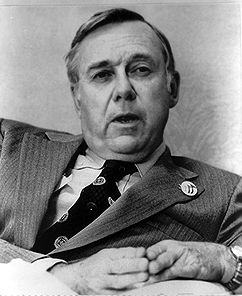
Government and Politics
NDP Recapture Saskatchewan
The NDP returned to power in Saskatchewan under the leadership of Allan Blakeney.
-
November 29, 1974
Communication and Culture
Saskatchewan Hijacking
Naim Djemal hijacked an aircraft over Saskatchewan, assaulted a stewardess and ordered the pilot to fly to Cyprus. He was apprehended in Saskatoon.
-
January 28, 1976
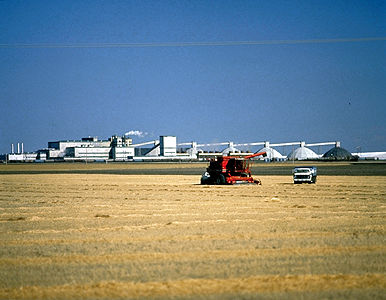
Resources and Environment
Saskatchewan Takes Over Potash
Saskatchewan passed legislation to take over the potash industry.
-
January 01, 1981

Resources and Environment
Grasslands National Park Established
Grasslands National Park was established. It is situated in the southwestern Saskatchewan Prairies on the Canada–US border.
-
April 26, 1982
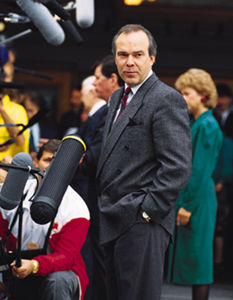
Government and Politics
Conservatives Win Saskatchewan
Grant Devine's PC's won the general election in Saskatchewan.
-
May 17, 1999
People
Milgaard Award
The Saskatchewan government awarded David Milgaard $10 million in compensation for his wrongful conviction for murder and 23 years of imprisonment. Milgaard was cleared by DNA evidence in 1997.
-
September 16, 1999
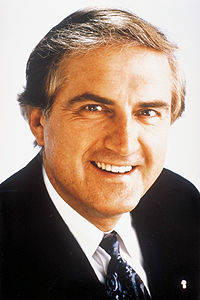
Government and Politics
Saskatchewan NDP Re-elected
The Saskatchewan NDP government, led by Premier Roy Romanow, was narrowly re-elected to a minority position, with 29 seats to the Saskatchewan Party's 26 and 3 Liberals.
-
November 30, 1999

Resources and Environment
Freshwater Protest
BC, Alberta, Saskatchewan, Manitoba and Québec rejected a national accord that would have prohibited the export of fresh water.
-
September 26, 2000

Government and Politics
Romanow Resigns
Roy Romanow stepped down as premier of Saskatchewan.
-
January 18, 2001

People
Court Upholds Latimer Sentence
The Supreme Court of Canada upheld the 10-year sentence imposed by Saskatchewan Court of Appeal on Robert Latimer for the mercy killing of his disabled daughter. A jury had handed down a lighter sentence.
-
December 10, 2014
Government and Politics Indigenous Peoples People
Perry Bellegarde Elected National Chief
Perry Bellegarde, former chief of the Federation of Saskatchewan Indian Nations and Saskatchewan regional chief of the Assembly of First Nations (AFN), was elected national chief of the AFN.
-
January 30, 2015
Government and Politics
Right to Strike Upheld by Supreme Court
The Supreme Court of Canada decided that the right to strike was constitutionally protected under the freedom of association clause of the Charter of Rights and Freedoms. The ruling struck down a Saskatchewan law that allowed government to prevent workers in essential services from striking.
-
February 15, 2015
Government and Politics People
Saskatchewan’s GeoMemorial Program
Saskatchewan’s GeoMemorial Program honoured eight fallen soldiers. The program names geographic locations after people whose sacrifices have “bettered our province and nation.” The new place names in northern Saskatchewan include: Goddard Lake, named for Captain Nichola Goddard; and Lang Bay, named for journalist Michelle Lang. Both were killed in Afghanistan.
-
December 29, 2015

People
Death of Allen Sapp
Cree artist Allen Sapp, one of Canada's foremost Indigenous painters, died in North Battleford, Saskatchewan, at age 87.
-
April 04, 2016
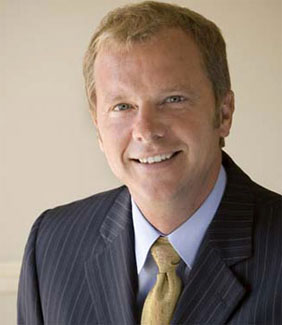
Government and Politics
Saskatchewan Party Re-elected
The Saskatchewan Party won a third majority in the 2016 provincial election, giving Brad Wall a third consecutive term as premier. The election was a harsh defeat for Saskatchewan’s NDP Opposition, whose leader, Cam Broten, lost his own seat.
-
April 28, 2016
People
Death of Philip Kives
Entrepreneur and TV pitchman Philip Kives died in Winnipeg, Manitoba, at age 87. Born in 1929 on a farm near Oungre, Saskatchewan, Kives showed a natural talent for sales in his youth. He worked for several years as a travelling salesman before founding K-Tel International in the early 1960s. The company marketed everything from kitchen gadgets to compilation records, and became profitable under the leadership of Kives, who personally pitched products on K-Tel infomercials and even claimed to have invented this form of advertising.
-
June 10, 2016
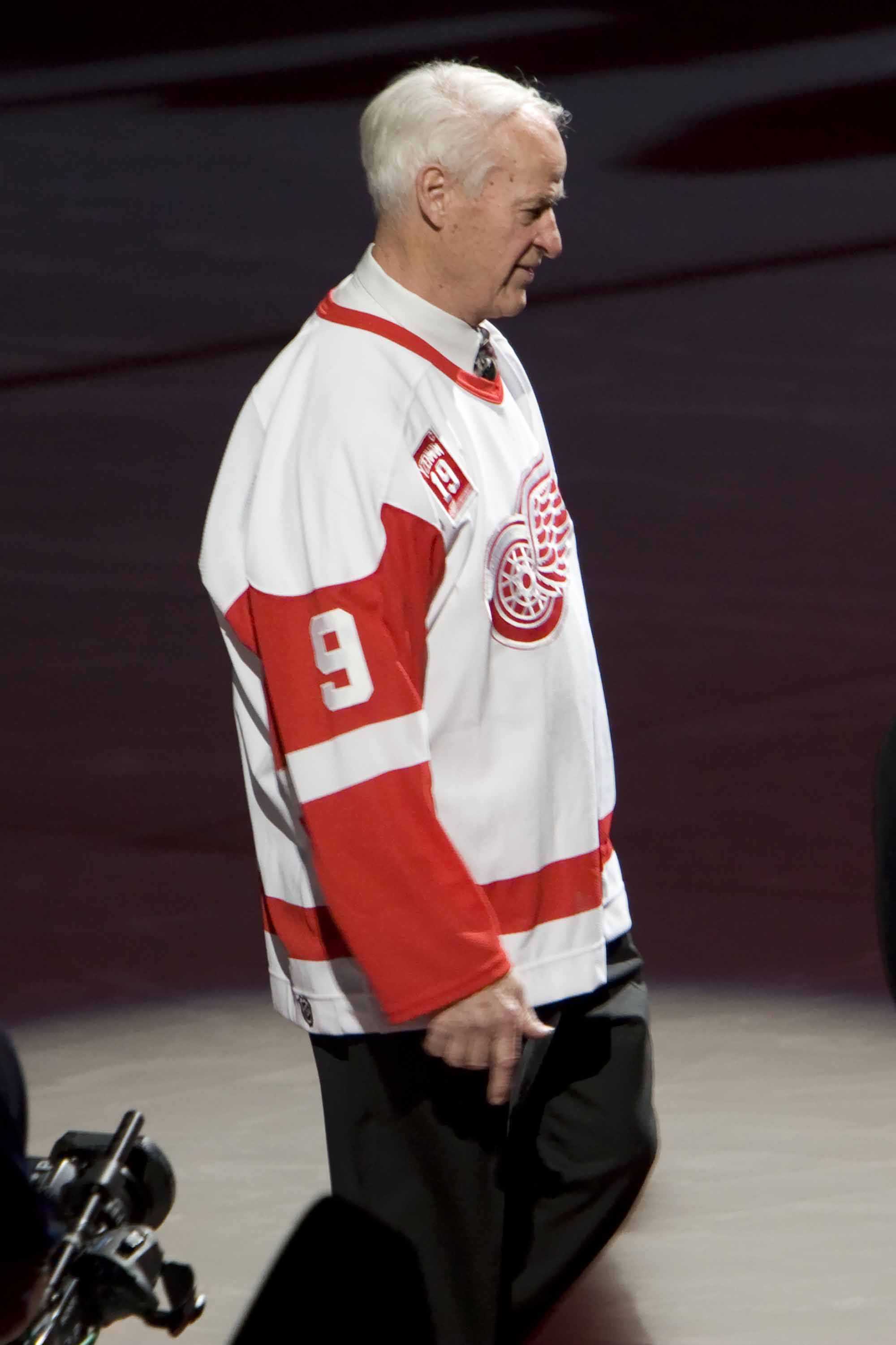
People
Death of Gordie Howe
Twenty-one-time National Hockey League all-star Gordie Howe — known to generations of fans as “Mr. Hockey” — died in Sylvania, Ohio, at age 88. The Floral, Saskatchewan native played for 32 seasons in the major leagues, including 26 years in the NHL — 25 of these with the Detroit Red Wings. Few players have come close to matching his overall proficiency, and none his longevity.
-
May 27, 2017

People
Andrew Scheer Elected Conservative Leader
Andrew Scheer, the 38-year-old MP for Regina-Qu’Appelle and former Speaker of the House of Commons, was voted the new leader of the Conservative Party, succeeding former prime minister Stephen Harper in the role.
-
July 21, 2017

People
Death of Kenny Shields
Kenny Shields, lead singer of the hard-rock band Streetheart, died in Winnipeg, Manitoba, at age 69. Streetheart formed in Regina, Saskatchewan, in 1976, and soon relocated to Winnipeg, becoming a fixture of the city’s music scene. The band performed and recorded until the mid-1980s, enjoying significant popularity in Canada and winning a Juno Award. Shields later went on to perform under his own name was inducted, with Streetheart, into the Western Canadian Music Hall of Fame in 2003.
-
October 05, 2017

Resources and Environment
Energy East Pipeline Project Cancelled
TransCanada announced that it had cancelled plans to build the Energy East pipeline, which would have carried crude oil from Alberta and Saskatchewan to refineries in Québec and New Brunswick. From there, oil would have been exported to other countries. The company cited changing market conditions and delays in assessments carried out by the National Energy Board as reasons for its decision. The project’s supporters, including premiers Rachel Notley and Brad Wall, expressed disappointment and criticized the federal government’s approach to the review process. Energy East’s opponents, including municipalities in Québec and Indigenous communities along the proposed path of the pipeline, hailed it as a victory.
-
June 23, 2021

Indigenous Peoples
Hundreds of Possible Unmarked Graves Found at Saskatchewan Residential School
One month after the discovery of 200 possible unmarked graves at a former residential school in Kamloops, BC, ground-penetrating radar revealed an estimated 751 possible unmarked graves at the site of the former Marieval Indian Residential School in Cowessess First Nation territory, about 150 km east of Regina. The radar search began on 1 June. The Marieval school was open from 1899 to 1997 and was administered by the Catholic Church until 1968.
-
July 11, 2021

Government and Politics
Saskatchewan Lifts All Public Health Restrictions
With 70 per cent of people aged 18 and over vaccinated with at least one dose of COVID-19 vaccine, Saskatchewan entered the third and final phase of its reopening plan by lifting all public health restrictions, such as the province’s mask mandate and limits on gatherings.
-
September 23, 2021

Government and Politics
Saskatchewan’s Health Care System on Brink of Collapse
Two and a half months after lifting all public health restrictions, Saskatchewan‘s health care system was being overwhelmed as cases of COVID-19 swamped ICUs. Elective surgeries were being cancelled and organ transplants were delayed as paramedics often had to wait as long as 17 hours to admit patients to hospitals that were already full. Hospitalized cases of COVID-19 had doubled in the last month in the province, which had one of the lowest vaccination rates in the country.

